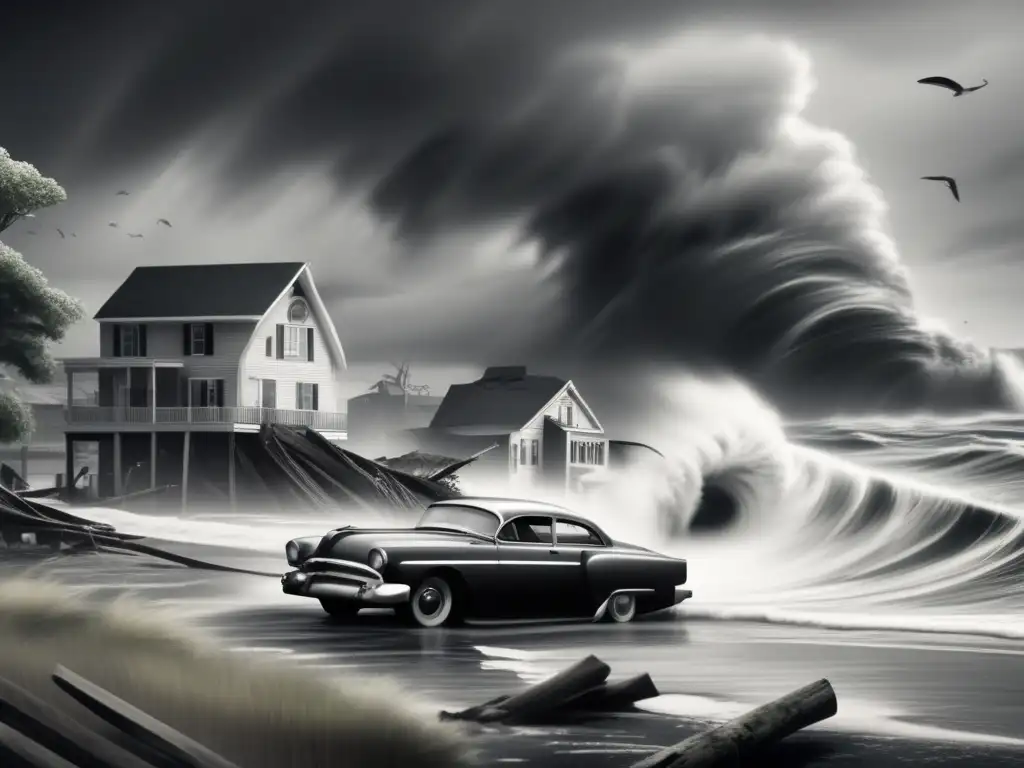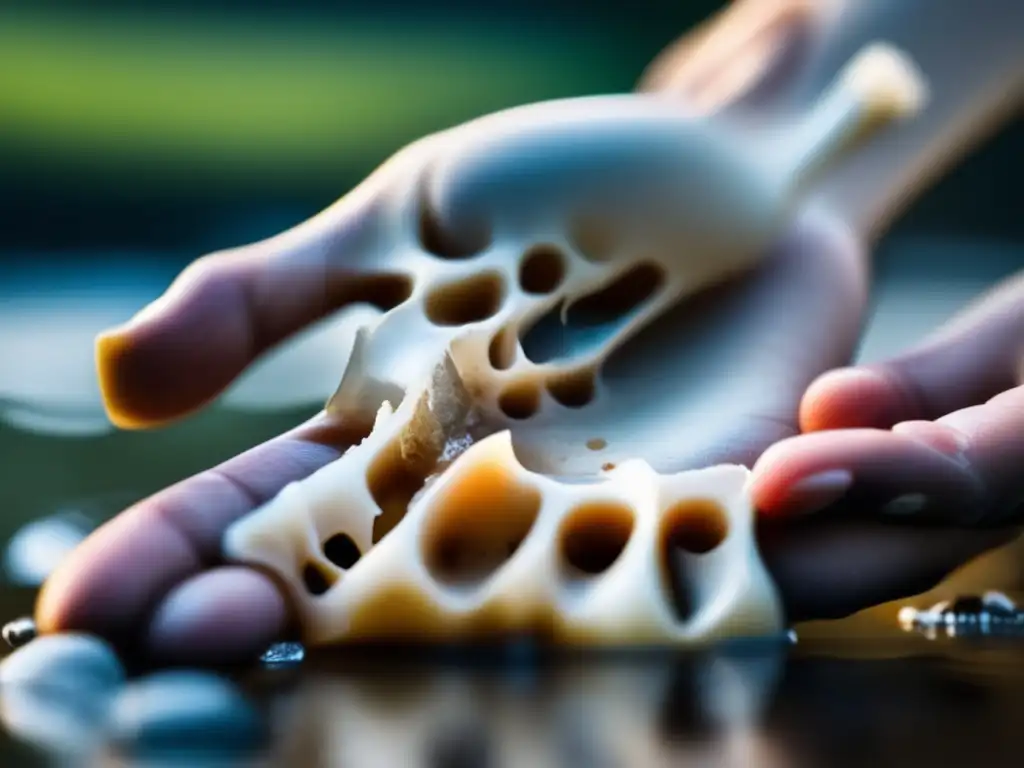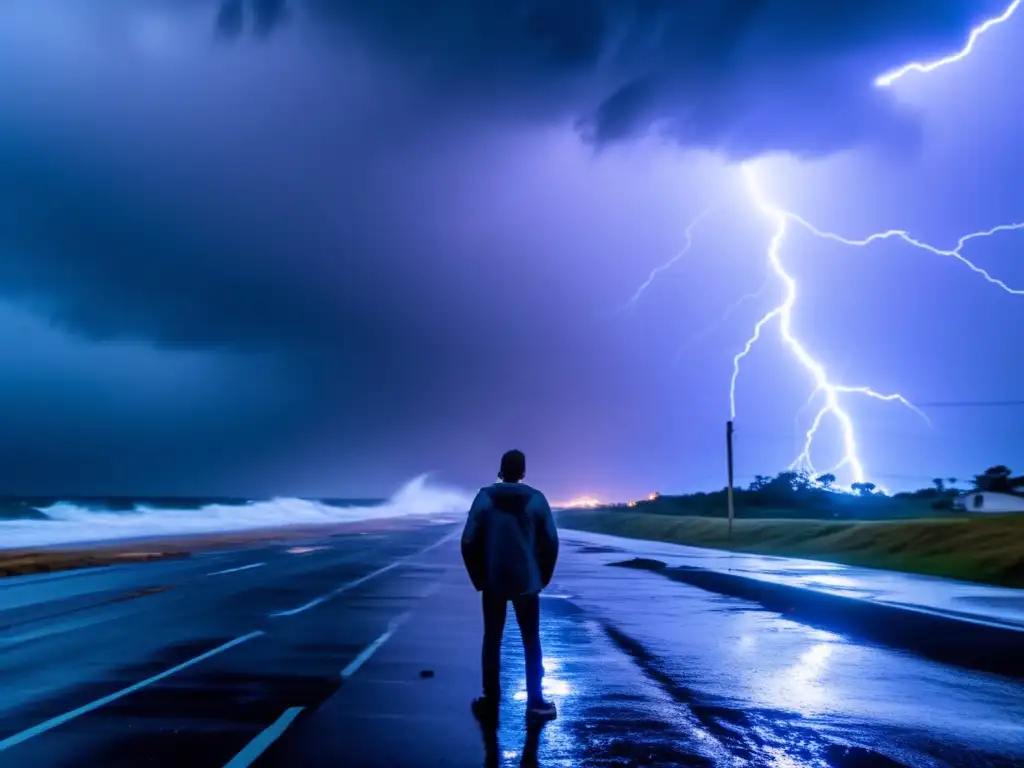Handling Personal Injuries Sustained During A Hurricane

Handling Personal Injuries Sustained During a Hurricane
Introduction
Hurricanes are powerful natural disasters that can cause widespread damage and destruction. They are unpredictable and can leave many people injured or worse. The aftermath of a hurricane can be just as dangerous as the storm itself, with debris and downed power lines posing significant hazards. In this article, we will discuss how to handle personal injuries sustained during a hurricane and provide essential information on how to minimize the risks during the recovery stage.
Head Injuries

Concussions
Concussions are a common injury that occurs when the brain is shaken inside the skull. They can occur from falls, being hit by flying debris, or being knocked over by strong winds. Symptoms include headaches, dizziness, nausea, and confusion. If you suspect that you or someone else has suffered a concussion, seek medical attention immediately. Rest is essential in recovery, and avoiding any activity that may cause further head trauma is advised.
Avoid using medications like aspirin or ibuprofen, as they may increase the risk of bleeding. Instead, acetaminophen is recommended for pain relief.
Lacerations
Lacerations are cuts caused by sharp objects, such as broken glass or debris. They are common during hurricanes as high winds can break windows and throw debris around. To handle lacerations, clean the wound with soap and water and apply pressure to stop any bleeding. Cover the wound with a sterile bandage and seek medical help if necessary. Tetanus shots may be required if the injury is severe or if the person has not had a tetanus shot in the past ten years.
Skull Fractures
Skull fractures are a severe injury that can result from being hit in the head by flying debris or falling objects. Symptoms include swelling, bruising, and severe headaches. If you suspect someone has a skull fracture, call for medical help immediately. Keep the person still by immobilizing their head and neck until professional help arrives.
Bone Injuries

Fractures
Fractures can occur from falls or being hit by flying debris during a hurricane. Symptoms include severe pain, swelling, and an inability to move the affected limb. To handle fractures, immobilize the injured area to prevent further damage. Ice the affected area to reduce swelling and pain. Seek medical attention to determine the extent of the fracture and receive appropriate treatment.
Sprains
Sprains are a common injury that occurs when ligaments are stretched or torn. They can be caused by slipping on wet surfaces during a hurricane or by tripping over debris. Symptoms include pain and swelling around the joint, limited mobility, and difficulty walking. To handle sprains, rest and elevate the affected limb, apply ice, and take over-the-counter pain medication if necessary. Wrap the injured area with a bandage for support, and seek medical attention if symptoms persist or worsen.
Dislocations
Dislocations occur when a bone is forced out of its socket. They can happen during intense winds or from falls. Symptoms include pain, swelling, and deformity around the joint. Dislocations require immediate medical attention to avoid further damage. Immobilize the affected area in its current position and seek medical help as soon as possible.
Burns

Thermal Burns
Thermal burns are caused by flames, hot liquids, or steam. They can occur during hurricanes if a fire breaks out or if hot liquids spill due to high winds. To handle thermal burns, cool the affected area with cold water or a cold damp cloth to relieve pain and prevent the burn from spreading. Avoid using ice as it can cause further skin damage. Cover the burn with a sterile bandage or clean cloth and seek medical attention if necessary.
Chemical Burns
Chemical burns occur from contact with chemicals, such as gasoline, bleach, or battery acid. To handle chemical burns, flush the affected area with large amounts of cold water for at least 20 minutes. Remove any contaminated clothing and jewelry carefully. Cover the burn with a sterile bandage or clean cloth and seek medical attention immediately.
Electric Shock

Precautions
Electric shocks can occur from downed power lines or faulty electrical equipment after a hurricane. To avoid electric shock, stay away from any downed power lines and warn others to do the same. Keep all electrical appliances and outlets away from water and avoid the use of any damaged electrical equipment. If you must work around power lines, wear protective gear and take extreme caution.
Handling Electric Shock
If someone has come into contact with an electrical source, call for professional help immediately. Do not touch the person until the power is turned off by a qualified professional. If you can't turn off the power supply, use a non-conductive object, such as a broomstick or wooden chair, to move the person away from the source of electricity. Check for signs of breathing or a pulse and administer CPR if necessary.
Frequently Asked Questions

-
What should I do if someone suffers an injury during a hurricane?
If someone is injured, call for emergency medical help immediately. While waiting, stabilize the person's condition and prevent any further damage.
-
How can I prepare for potential injuries during a hurricane?
Make sure to have a first aid kit on hand with essential supplies such as bandages, gauze, and antiseptics. Additionally, make a plan of action with your family and neighbors in case of an emergency.
-
What should I do if there is a hurricane warning?
Take all necessary precautions as advised by authorities, including evacuating if necessary. Make sure to secure all loose items around your home and stock up on essential supplies.
-
What are the most common injuries sustained during a hurricane?
The most common injuries are head injuries from falls or being hit by debris and cuts from broken glass or debris. Burns, sprains, dislocations, fractures, and electric shocks are also possible.
-
How long does it take to recover from hurricane-related injuries?
The length of recovery time depends on the severity of the injury. Rest, proper nutrition, and seeking medical attention when necessary can speed up the healing process.
Conclusion
Handling personal injuries sustained during a hurricane requires proper knowledge and preparation. Essential precautions such as avoiding downed power lines, staying away from damaged buildings and securing loose objects can go a long way in preventing injuries. In case of an injury, it is essential to seek medical attention immediately to avoid further complications. We hope the information presented in this article will help you stay safe during a hurricane and minimize the risk of injuries.
If you have any additional questions or tips on handling hurricane-related injuries, please share them in the comments section below. Remember to stay safe and always be prepared.
Additional Resources

- Ready.gov - Hurricanes
- CDC - Hurricane Preparedness and Response
- FEMA - Federal Emergency Management Agency
 Rebuilding Infrastructure: Roads And Bridges Post-Hurricane
Rebuilding Infrastructure: Roads And Bridges Post-Hurricane The Role Of Local Government In Post-Hurricane Recovery
The Role Of Local Government In Post-Hurricane Recovery Protecting Coastal Ecosystems After A Hurricane
Protecting Coastal Ecosystems After A HurricaneIf you want to discover more articles similar to Handling Personal Injuries Sustained During A Hurricane, you can visit the Hurricane recovery: category.
Leave a Reply

Articulos relacionados: